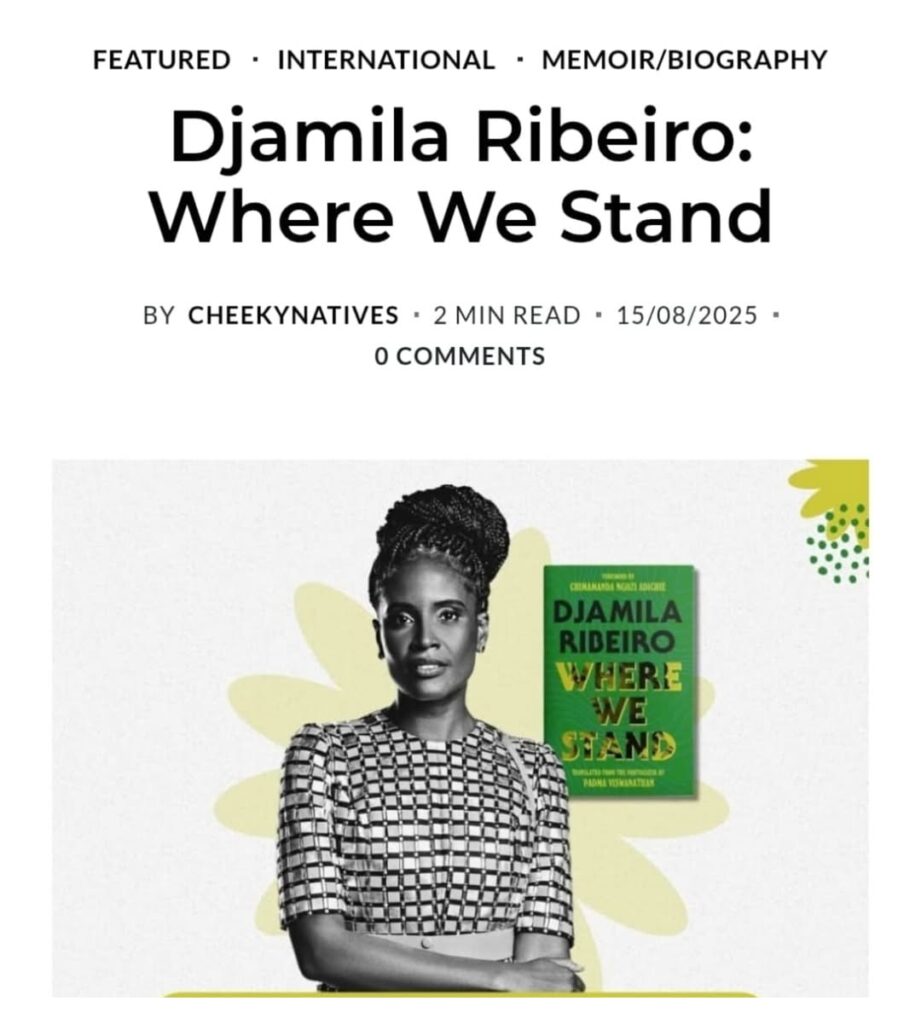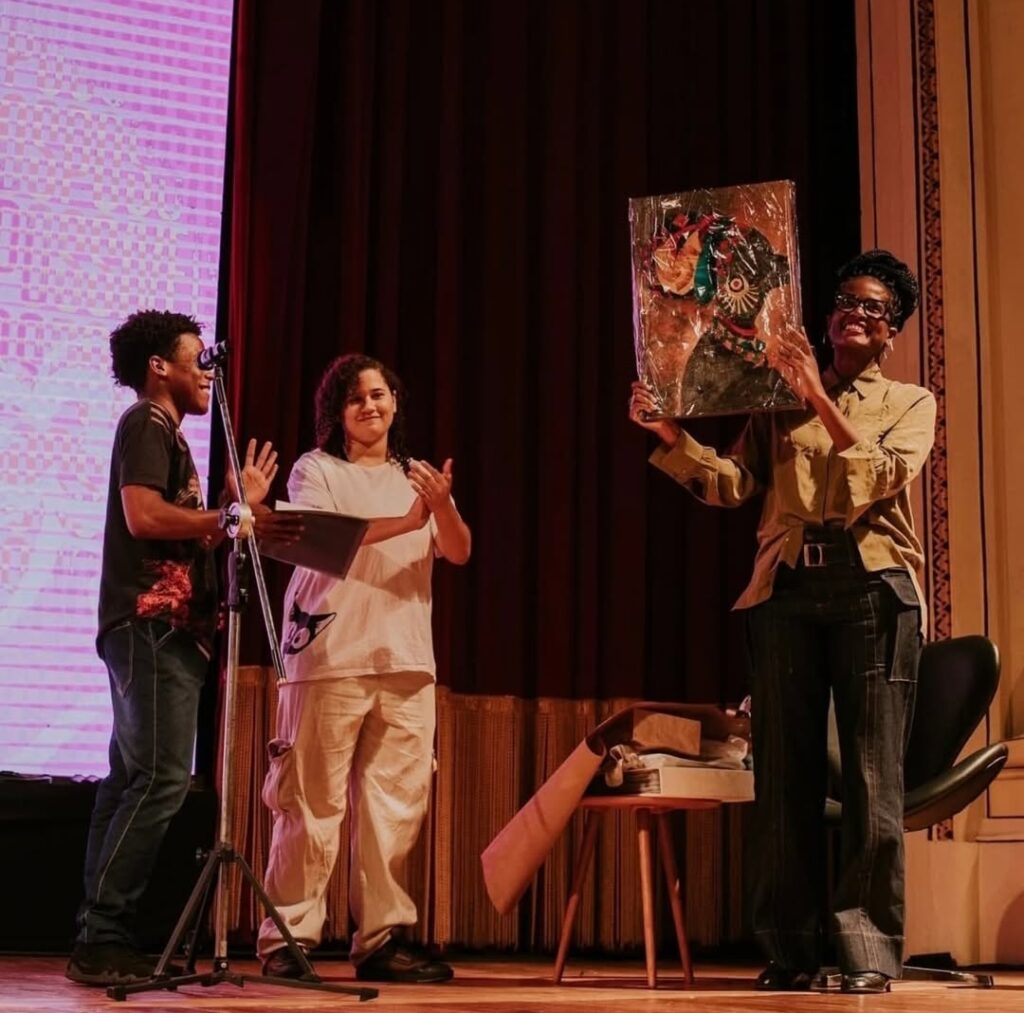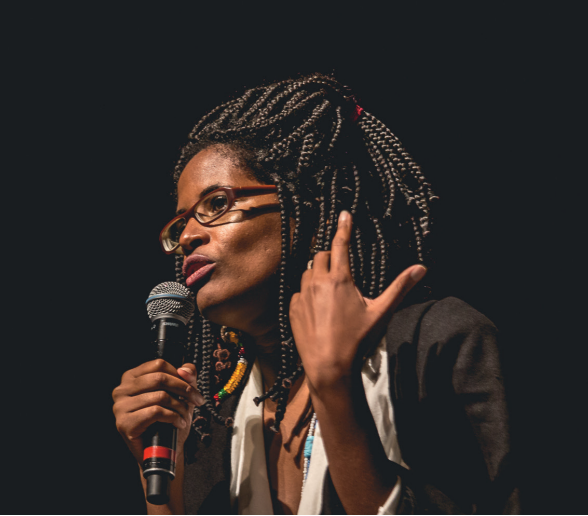“Where We Stand” gains recognition in South Africa during the month that marks Black women’s struggle against apartheid

Where We Stand, the English edition of Lugar de Fala (Place of Speech), received wide recognition this week in South Africa with three reviews published in the country. Two appeared in major newspapers — the Sunday Times and the Daily Maverick — and the third was featured on the literary podcast Cheeky Natives.
The recognition came in August, during South Africa’s Women’s Month — a period dedicated to honoring Black women who led historic struggles against apartheid and who remain central in debates on race, gender, and justice.
“I am very happy to see my book engaged in this special context, in a country with such a strong tradition of Black women’s struggle and critical reflection on race, gender, and justice,” Djamila wrote on her social media.
The Brazilian philosopher had already made history in June, during her international tour, when she launched Where We Stand at Wits University in Johannesburg. It was the first time a Brazilian author had launched a book in the country — a symbolic gesture that reinforces the strength of cultural bridges between Brazil and South Africa.
Published by Yale University Press and distributed in South Africa by Jonathan Ball Publishers, the book is already available in major bookstores across the country. The initiative also counted on the support of the Embassy of Brazil in Pretoria, a long-time partner of the author.
The circulation of Where We Stand in South Africa reiterates the importance of transnational dialogues among the experiences of Black women. Just as in Brazil, where Ribeiro emphasizes in Lugar de Fala the centrality of historically silenced voices, in South Africa her work resonates with an intellectual and political tradition that includes figures such as Albertina Sisulu, Winnie Mandela, and other women who defied the racist apartheid system.
For Djamila, the reception of the book in South Africa reinforces the international reach of Black intellectual production. “Brazil and South Africa have much to share. I hope to return soon and I leave my gratitude to Yale University Press, Jonathan Ball Publishers, and the Embassy of Brazil in Pretoria for their support,” she concluded.
Ver essa foto no Instagram
Content translated with the assistance of AI.
Related articles

August 25, 2025
Project Combinando Palavras connects Djamila Ribeiro’s work with public school students in São Paulo state

December 21, 2022
Djamila Ribeiro launches new website

December 21, 2022
Djamila Ribeiro is on the cover of Forbes Life

